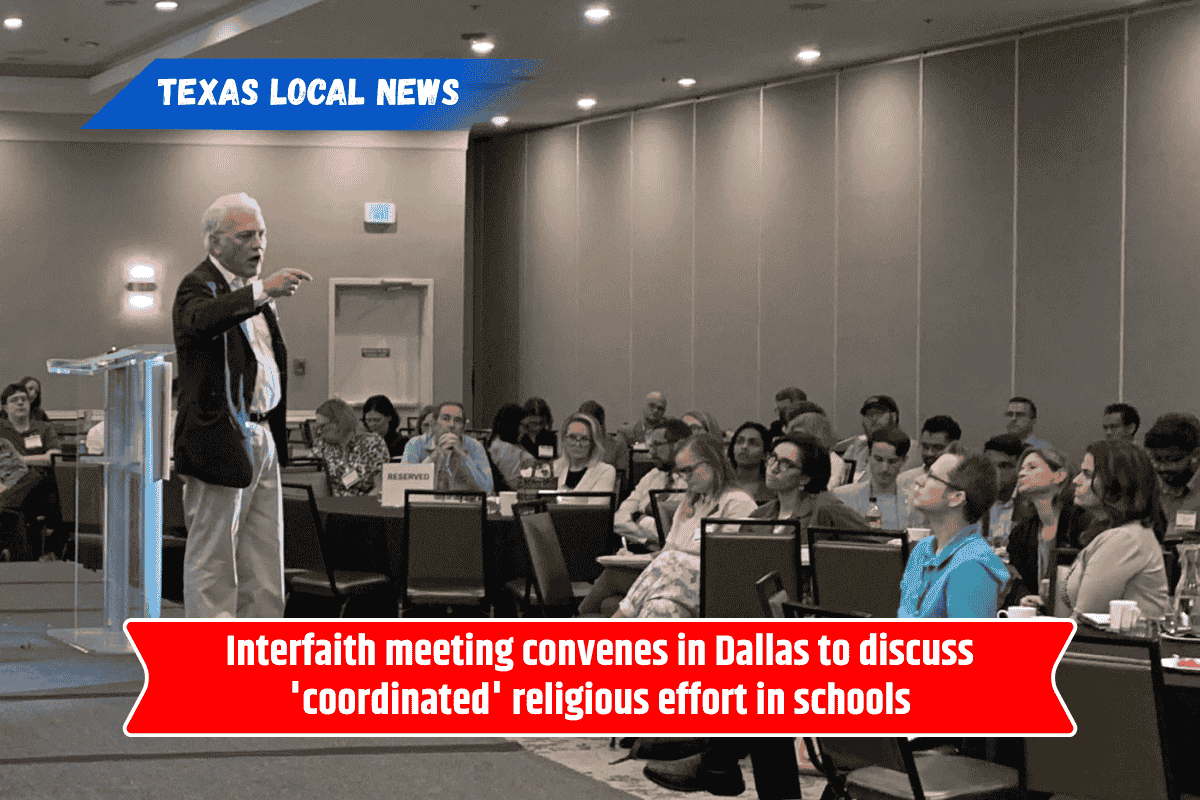A coalition of interfaith groups is opposing what they call a “Christian nationalist” school movement, which is beginning in Texas.
This week, Dallas hosted the first-ever Religious Freedom in Public Schools summit.
The Washington, D.C.-based non-profit Interfaith Alliance organized the summit, which brought together over 150 persons and several religious, civic, and community organizations from 22 states.
Vice President Guthrie Grave-Fitzsimmons stated that Texas was chosen for the first meeting because the state has already passed legislation allowing chaplains to serve as school counselors, sending public funds to private and religious schools, requiring classrooms to display the Ten Commandments in every class (which is being challenged in court), and allowing districts to set aside prayer time.
“For decades, we’ve had a consensus in our public schools that they should be open to people of all faiths and none, that the government should not indoctrinate students with one religion in our schools,” Graves-Fitzsimmons claimed.
“And yet that consensus is breaking down because of a concentrated, coordinated push by far-right extremists to push one version of fundamentalist Christianity through our public school.”
Graves-Fitzsimmons is a Baptist seminary graduate who has returned to school to further his knowledge. He said he enjoys teaching religion, but not in public schools or by the government, which he believes is occurring in Texas.
Last year, the State Board of Education adopted the new Bluebonnet Learning curriculum for schools, which includes several Biblical references as well as references to other religions, but critics argue that it favors Christianity over other faiths.
Graves-Fitzsimmons stated that the latest summit gathered like-minded individuals and groups together to say “no more.”
“We are going to push back and rebuild the consensus,” he told us. “Our public schools should be open to all students of all faiths.”
Charles Johnson, a Fort Worth pastor who leads the Bread Fellowship as well as the nine-state Pastors for Children, believes that government should be removed from public schools for the sake of religion, schools, children, and families.
“Whether it’s the Ten Commandments in the classroom or chaplains in schools or the Blue Bonnet curriculum or private school vouchers, it’s Christian nationalism on steroids is what it is,” according to him.
Johnson expressed two key worries when religion enters Texas public schools: that government involvement contaminates voluntary faith and that it undermines the long-standing separation of church and state.
“We have a statute in this country that founded this nation, that this government shall make no establishment of religion nor prohibit the free exercise thereof,” declared him. “We don’t need people in the political class advancing their own narrow brand of their private religion on the public.”
Texas government officials, notably Attorney General Ken Paxton, have advocated for stronger Christian influence in schools. In a social media post from August. Governor Greg Abbott stated that parents may be confident that their values will be protected.
“By allowing prayer and incorporating the 10 Commandments into classrooms, religious freedom is secure in Texas public schools,” according to him.
Paxton issued a statement earlier this month encouraging schools to begin the legal process of creating dedicated prayer time following the passage of Senate Bill 11.
“In Texas classrooms, we want the Word of God opened, the Ten Commandments displayed, and prayers lifted up,” he told the crowd.
Maggie Siddiqi, a senior fellow with the Interfaith Alliance, is concerned that the country is in crisis as a result of these expanding initiatives to incorporate Christianity into public schools in a new and significant way. She stated that these initiatives appear to alienate Muslims such as herself.
“I think it’s indicative of some of the larger challenges we’re seeing to our democracy,” according to Siddiqi.
She went on to say that members of Congress have reached a bipartisan agreement on the meaning of the First Amendment’s Free Exercise Clause and Establishment Clause.
She said that religion was not taught in public schools. She thinks that the shift will weaken everyone’s religious freedom.
